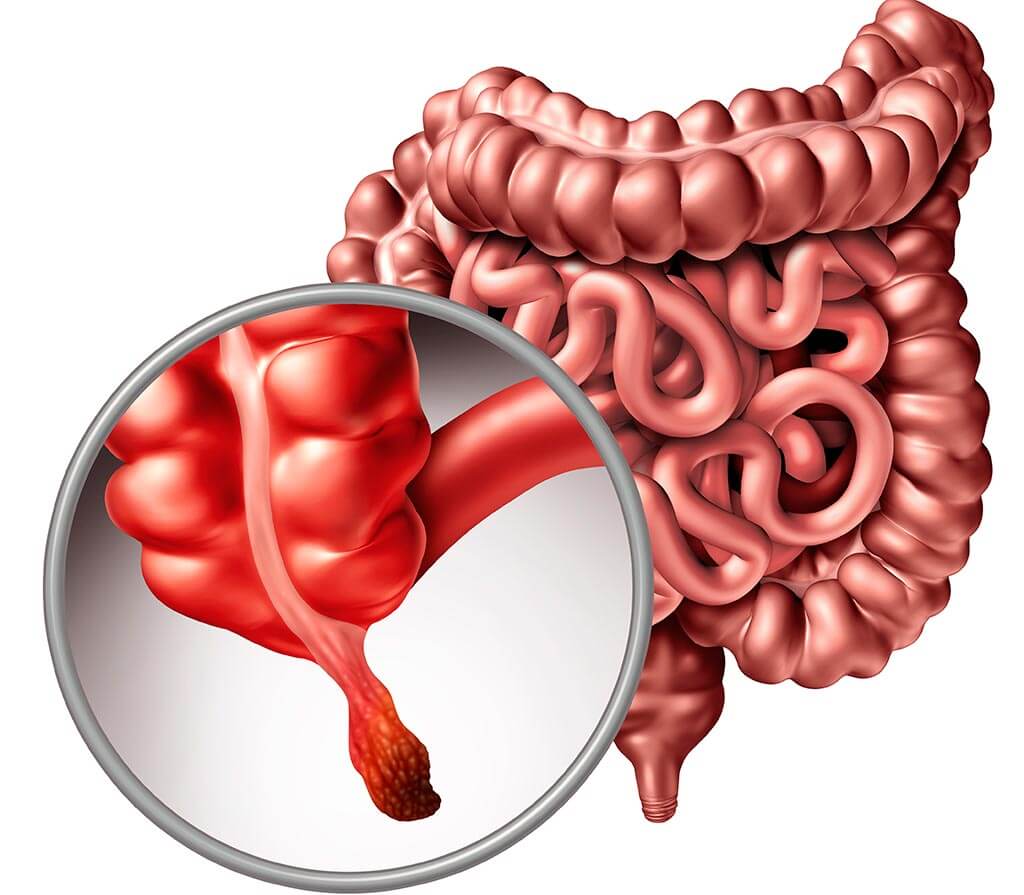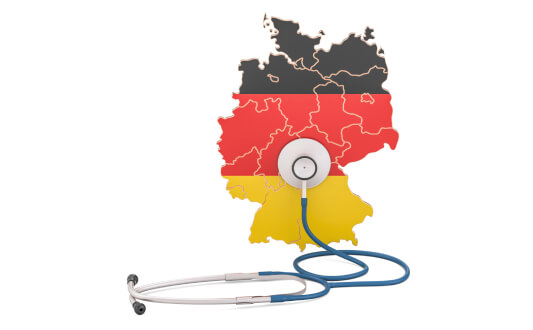Surgical treatment has been considered the "gold standard" for therapy of acute appendicitis for many years. Nevertheless, modern diagnostic methods and effective targeted drugs give many patients a chance to cure the disease with non-surgical measures. If you choose a specialized hospital in Germany, Switzerland, Turkey, Israel, or another country with excellent medical care and high success rates, you may receive the desired result without surgery or only undergo a minimally invasive and safe operation.
Content
- An examination is the basis for choosing the therapeutic regimen
- Conventional treatment is suitable in a number of patients
- Surgical treatment as a curative measure
- Specialized hospitals and treatment costs
- Treatment abroad with Booking Health
An examination is the basis for choosing the therapeutic regimen
In most cases, a general practitioner suspects the pathology based on the patient’s symptoms, medical history, and the results of a physical examination. First, a doctor will ask a bunch of questions regarding their symptoms and previous health history. These include information about:
- exact pain location, migration of pain across the abdomen;
- severity and duration of pain;
- presence of other symptoms, such as fewer or unusual bowel movements;
- presence of concomitant medical conditions or recent surgical procedures;
- use of medicines, illegal drugs, and alcohol consumption.
Depending on the answers and results of the physical examination (checking psoas sign, Rovsing's sign, rebound tenderness, etc.), a general practitioner or surgeon proceeds to the laboratory tests. These include blood tests (they can show signs of infection), urinalysis (for excluding renal colic), and a pregnancy test for women (for excluding ectopic pregnancy).
Imaging tests are the conclusive examinations and confirm the diagnosis of appendix inflammation or find other causes of the abdominal pain:
- An abdominal ultrasound is an easily performed, painless, and cost-effective procedure that can reveal signs of appendix inflammation or blockage, a burst appendix, as well as other causes of pain.
- A CT scan of the abdomen gives a more detailed picture of the abdominal organs and can additionally reveal an appendiceal abscess.
- An MRI of the abdomen is a reliable and safe alternative to a CT scan.
These comprehensive diagnostics determine the therapeutic regimen. Acute appendicitis is a medical emergency that is connected with the risk of peritonitis development and requires urgent surgery. At the same time, appendicitis with minimal risks can be successfully treated with conventional measures.
Conventional treatment is suitable in a number of patients
For over 100 years, before wide antibiotic administration, surgery was the principal treatment option in patients with acute appendicitis. Nevertheless, during the last decade, the paradigm has shifted to the treatment of uncomplicated appendicitis with anti-inflammatory medications and antibiotics. Avoiding surgery is especially beneficial for children and debilitated patients.
The conservative treatment of appendicitis includes the administration of a third-generation cephalosporin antibiotic (e.g. cefotaxime), 2 g twice daily in combination with nitroimidazole preparations (e.g. tinidazole), 800 mg daily. Being discharged from the hospital after an improvement, patients should continue taking quinolone antibiotics (e.g. ofloxacin), 200 mg twice daily in combination with nitroimidazole preparations, 500 mg twice daily for up to 8 days.
Non-surgical therapy allows doctors to preserve the patient’s appendix, which produces mesenchymal stem cells. After differentiation, mesenchymal stem cells give origin to myoblasts, lipoblasts, and osteoblasts. In addition, the appendix contributes to maintaining normal gut flora. It serves as the reservoir for useful bacteria and helps recolonize the bowel after infections and antibiotic therapy.
Despite safety, effectiveness, and excluding surgical risks (i.e. bleedings, infections, stress), conservative therapy is not suitable for all patients. Patients with an appendiceal abscess, burst appendix, or peritonitis must undergo surgery. In addition, it is associated with certain relapse risks. The success rate of antibacterial therapy reaches 84%, while a relapse occurs in up to 21% of patients during the first year of their consequent follow-up.
Surgical treatment as a curative measure
Surgery is the only possible treatment option for patients with severe pain syndrome and progressive deterioration, a burst appendix and peritonitis, or when doctors cannot make a clear diagnosis. An Appendectomy is removing the diseased appendix by means of keyhole surgery (laparoscopy) or open intervention.
A laparoscopic appendectomy is carried out via 1-3 tiny cuts in the abdominal wall. A laparoscope equipped with a video camera and surgical instruments reaches the target area inside the abdomen, so a doctor can see the operative field on the monitor and perform all the manipulations. A keyhole surgery shortens the hospital stay, causes less pain, and promotes quicker normalization of bowel function. If necessary, it can be converted to the open surgery, particularly in patients with:
- signs of infection or an appendiceal abscess;
- signs of a perforated appendix;
- poor organ visualization, obesity;
- scar tissue in the abdomen due to prior abdominal surgeries;
- uncontrolled bleedings (rare).
An open appendectomy provides a surgeon with better visualization of the operative field and a better approach to the appendix and neighboring organs. Thus, it is superior to the keyhole procedure for complicated and atypical cases. A single large cut in the right lower side of the abdomen is made under general anesthesia. After appendix removal, revising the abdomen for signs of peritonitis and careful hemostasis, a surgeon closes the operative wound with regular or dissolvable stitches.
Specialized hospitals and treatment costs
Conservative and surgical treatments of appendicitis are carried out in the General or Abdominal Surgery Departments of large multidisciplinary hospitals. Here, the patient stays under the constant supervision of experienced surgeons, which makes it possible to carry out an operation without wasting time, if necessary.
Considering the success rates of treatment, the cost-quality ratio of medical services, the level of comfort, and other indicators, one of the following hospitals should be chosen for the treatment of appendicitis:
- Academic Hospital Brothers of Mercy Munich, Department of General and Abdominal Surgery
- University Hospital of Ludwig Maximilian University of Munich, Department of General, Abdominal, and Transplant Surgery
- Charite University Hospital Berlin, Department of General, Abdominal, and Vascular Surgery
- University Hospital Ulm, Department of General and Abdominal Surgery
- University Hospital Carl Gustav Carus Dresden, Department of Abdominal, Thoracic, and Vascular Surgery
The cost of appendectomy starts at €4,500.
Treatment abroad with Booking Health
Those patients who want to explore all the possibilities of appendicitis treatment, and not just undergo surgery, often seek help in the specialized clinics of foreign countries. The international medical tourism provider, Booking Health, offers help in the medical and organizational aspects of undergoing diagnostics and therapy in Germany, Turkey, Israel, and other countries.
Booking Health takes care of:
- choosing the optimal hospital;
- establishing communication with the chosen physician;
- preparing the diagnostic and possible treatment program in advance, excluding unnecessary interventions;
- booking the hospitalization date or outpatient appointment;
- monitoring all stages of the medical program;
- Providing favorable prices for medical and related services, excluding overpricing and saving up to 50%;
- control of invoices and final calculation;
- medical insurance against the cost of treatment increase (а coverage of €200,000, valid for 4 years);
- communication with the hospital and physician after the treatment’s completion;
- organization of additional and follow-up examinations;
- offering related services of the highest level: booking hotels and tickets, transfer organization, and interpreting services.
Choose treatment abroad and you will for sure get the best results!
Authors:
The article was edited by medical experts, board certified doctors Dr. Nadezhda Ivanisova, Dr. Sergey Pashchenko. For the treatment of the conditions referred to in the article, you must consult a doctor; the information in the article is not intended for self-medication!
Sources:
Read:
Why Booking Health - questions and answers
How to make right decision when choosing the clinic and specialist
7 reasons to trust to the rating of clinics on the Booking Health portal
Don't know where to start?
Contact Booking Health







